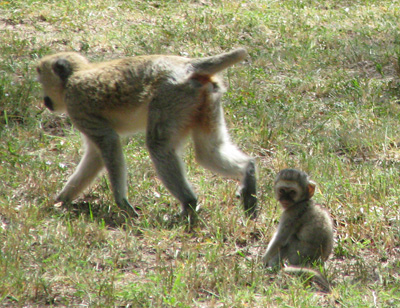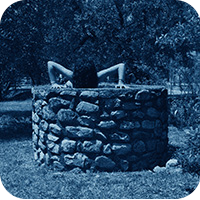Call of the wild
In Kenya I stayed in a tent camp — not at all a luxury and a great way to extend the daytime safari thrill of being surrounded by animals. It was a thrill mostly unseen as the night came alive with noises that were always just outside the radius of the feeble gas lanterns around the camp.
Maasai tribesmen, hired by camp, patrolled the grounds at night, but it was still unnerving. Perhaps even more so when I’d start to wonder why we needed guards in the first place.
Cracking branches, rustling in the brush, and occasional screeches in the distance — it all made getting up to take a leak outside the tent at night positively terrifying. In fact the night before I arrived a lion came into camp at night and roared for about twenty minutes. The Maasai said it was just “talking” to its pride.

Coincidentally I had been reading a fascinating survey of 20th century music that mentioned in passing a study by two psychologists exploring the reason that certain musical passages give people the chills.
Their theory? It’s related to the call of the wild, which also explains the feeling of hearing an animal cry in the distance in a dark tent.
In our estimation, a high-pitched sustained crescendo, a sustained note of grief sung by a soprano or played on a violin (capable of piercing the ‘soul’ so to speak) seems to be an ideal stimulus for evoking chills. A solo instrument, like a trumpet or cello, emerging suddenly from a softer orchestral background is especially evocative.
Accordingly, we have entertained the possibility that chills arise substantially from feelings triggered by sad music that contains acoustic properties similar to the separation call of young animals, the primal cry of despair to signal caretakers to exhibit social care and attention. Perhaps musically evoked chills represent a natural resonance of our brain separation-distress systems which helps mediate the emotional impact of social loss.
Put another way, a solo instrument breaking free from the larger family of sound evokes in humans a kind of separation anxiety, an empathetic response that, like separation, is largely fear-based. And this response, the authors posit, is evolutionary. It’s related to animals (or human babies) calling out for attention. The call of the wild is a call of isolation. And isolation is scary.
They continue, attempting to explain the chills further.
In part, musically induced chills may derive their affective impact from primitive homeostatic thermal responses, aroused by the perception of separation, that provided motivational urgency for social-reunion responses. In other words, when we are lost, we feel cold, not simply physically but also perhaps neuro-symbolically as a consequence of the social loss.
“Homeostatic thermal responses” … yes, a hug. Chills as symbolic response to a lack of skin contact with others of your group. (Consider this image of a monkey baby clung to the bottom of its mother.)
See also a podcast from today’s Guardian on related evolutionary insights from music.














We’ve got to teach Alyson to tap into our Call of the Wild frequency